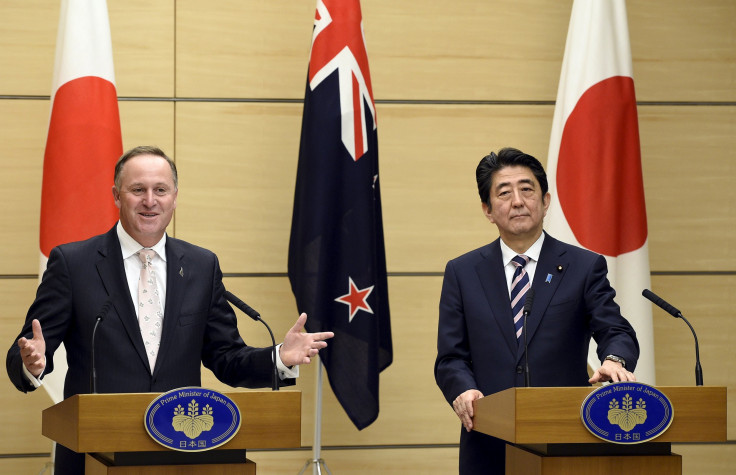New Zealand Trade Surplus Falls in April: Chinese Demand for Dairy Products Dips

Despite presenting a promising budget in May, New Zealand's trade surplus nosedived in April as milk powder exports to China plummeted. The figures released by Statistics New Zealand said the trade surplus was NZ$123 million in April compared with the $100 million expected under a Reuters poll of eminent economists. This was found to be lower than the $754 million surplus in March, which was revised higher from the $631 million that was initially reported.
Exports to China dropped 26 percent in 2015 through April to $8.45 billion due to the softening of demand from China on commodities such as whole milk powder. Exports of milk powder, butter and cheese fell 27 percent to $888 million due to lower quantities for whole milk powder and lower prices overall. The annual trade deficit fell to $2.62 billion, compared with the $2.79 billion expected in the Reuters poll and became the largest deficit since June 2009 or after the global financial crisis.
Fall in Volume and Value
"The value of whole milk powder we sent to China in April 2015 was a fifth of the April 2014 value," international statistics manager Jason Attewell said. He said volumes were a third of what they were in April 2014 and lower prices made up the rest of the fall in value. The relief was that export of fruits rose 21 percent to $360 million, led by kiwifruit. But exports of logs, wood and wood articles fell 8.7 percent to $311 million. Similarly, crude oil exports too suffered and there was a decline of 43 percent.
As for imports in April, they jumped 2.6 percent to $4.04 billion compared to same period in 2014 in line with the $4.1 billion expected in the Reuters poll. There was a jump in capital goods imports. It rose 26 percent on the back of higher imports of transport equipment such as aircraft and parts, while those of consumption goods increased 6.1 percent, led by food and beverages.
Diversification Needed
The fall of annual trade deficit to 2.6 billion NZ dollars (1.9 billion U.S. dollars), is the largest annual deficit since June 2009, and is viewed with concern. Reacting to the narrowing trade surplus, the Green Party said the country is paying the price for the government's failure to diversify the economy, reported Shanghai Daily. "The Budget on May 21 was quite clear that the government's positive economic predictions rely on increasing dairy revenue, but the trends show that this is unlikely," said Green Party leader Russell Norman, in a statement.
(For feedback/comments, contact the writer at k.kumar@ibtimes.com.au)






